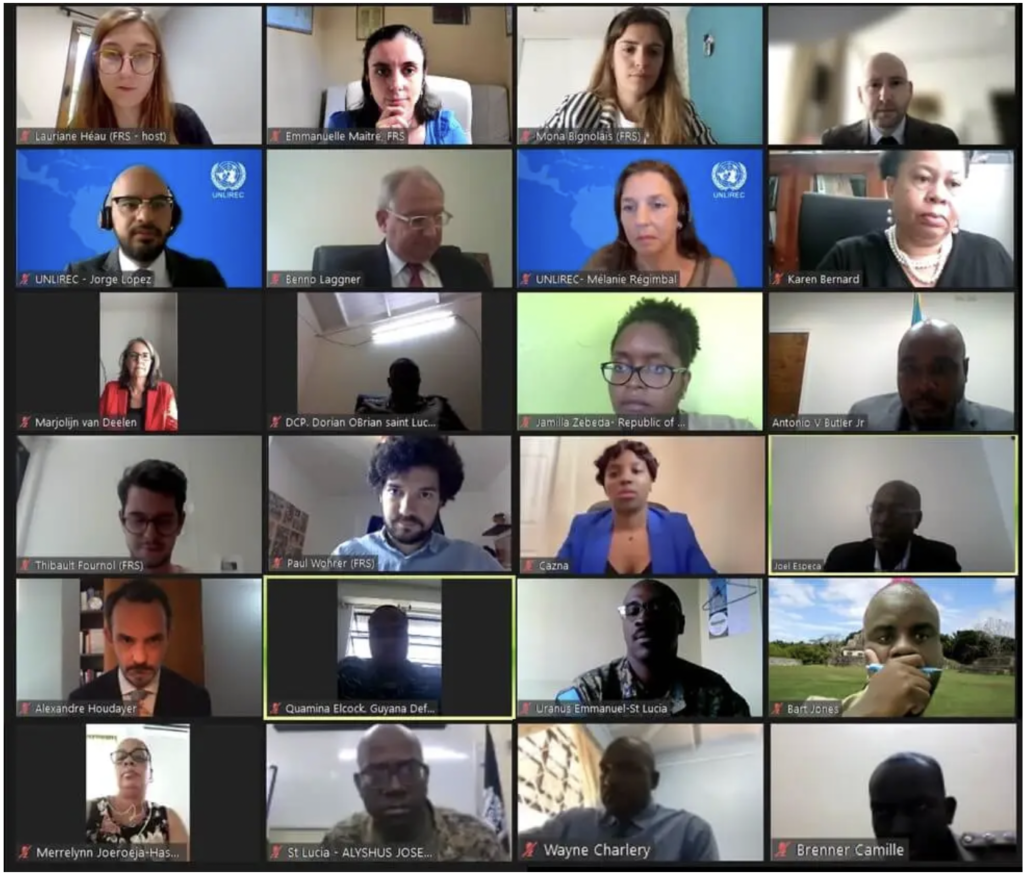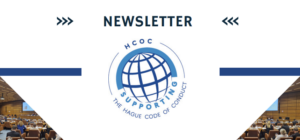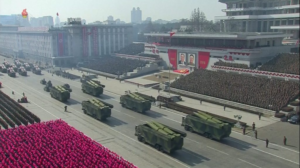Virtual seminar dedicated to CARICOM countries
8 June 2021
Virtual
A new virtual event was held on 8 June 2021. The FRS and delegations from 8 Caribbean nations discussed over ballistic missile proliferation and the role of the Hague Code of Conduct.
AGENDA
PRESENTATION & WELCOMING REMARKS
-
Alexandre HOUDAYER, Secretary General, FRS
- Amb. Marjolijn VAN DEELEN, Special Envoy for Disarmament and Non-Proliferation, European External Action Service (EEAS), European Union
-
Anselme YABOURI, Director, United Nations Regional Centre for Peace and Disarmament in Africa (UNREC)
- Amb. Joska KABONGO NGOY, Secretary General, Ministry of Foreign Affairs, DRC
I/ The HCoC: A MULTILATERAL INSTRUMENT TO CURB THE PROLIFERATION OF MISSILES
MODERATOR:
- Emmanuelle MAITRE, Research Fellow, FRS
PRESENTERS:
- Benno LAGGNER, Resident Representative to the IAEA, Permanent Representative to the CTBTO PrepCom, Permanent Mission of Switzerland, Vienna, Austria, HCoC Chair 2020-2021
- George-Wilhelm GALLHOFER, Minister, Representative of the HCoC Immediate Central Contact (ICC), Ministry of Foreign Affairs, Austria
- Alexandre HOUDAYER, Secretary General, FRS
KEY ISSUES:
- Contribution of the Code to international security
- Being a Subscribing State: commitments and benefits
- Day-to-day implementation of the Code
- What opportunities for Caribbean countries in joining the Code? What constraints?
II/ KEYNOTE SPEECH
- Jorge LÓPEZ, Project Advisor, UNLIREC

III/ The HCoC: CURBING BALLISTIC MISSILE PROLIFERATION IN THE CONTEXT OF GLOBAL NON-PROLIFERATION & DISARMAMENT EFFORTS
MODERATOR:
- Jorge LÓPEZ, Project Advisor, UNLIREC
PRESENTERS:
- Emmanuelle MAITRE, Research Fellow, FRS
- Paul WOHRER, Research Fellow, FRS
KEY ISSUES:
- How to limit the risks associated with ballistic missile proliferation?
- Links and bridges between the HCoC and other non-proliferation and disarmament tools
- Contribution of regional organizations in implementing WMD disarmament and nonproliferation instruments
CONCLUSION


